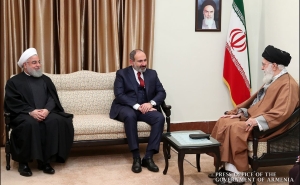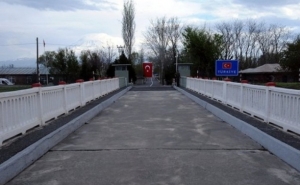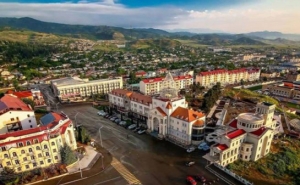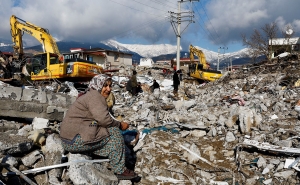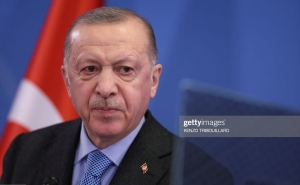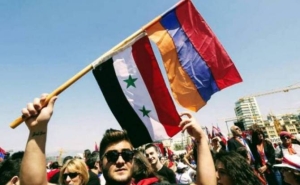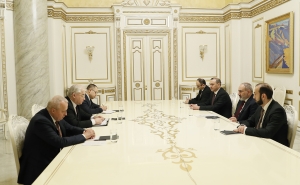 Why Iran Supports Turkey, Or the Regional Puzzle in Syria
Why Iran Supports Turkey, Or the Regional Puzzle in Syria
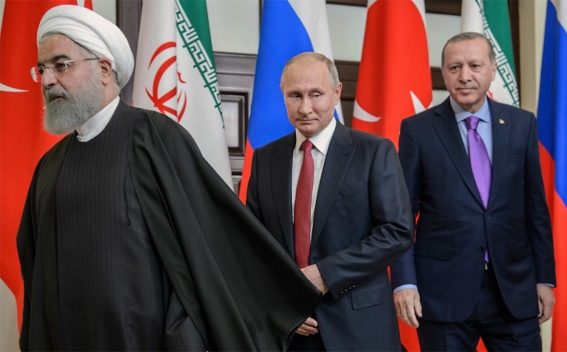
on March 18 Iran and Turkey launched a joint anti-terrorist operation on the Turkish-Iranian border against the militants of the Kurdistan Workers' Party, turkish Interior Minister Suleyman Soylu said.
Operations against PKK militants considered as terrorists in Turkey, especially during the pre-election period, are a good opportunity for the ruling party to attract a nationalist-minded electorate. Therefore, such an operation on the eve of March 31 local elections was quite expected.
It is noteworthy that Iran joined this operation: this is the first Turkish-Iranian joint operation against the PKK. Turkey announced a joint operation with Iran against the PKK on the eve of the general elections in June 2018, but Iran did not join it.
The Turkish authorities not only receive political dividends from operations against the PKK, but also address the country's security issues. And for Iran this operation can become a headache. Thus, it is in Iran that the Party of Free Life of Kurdistan operates, being considered the Iranian counterpart of the PKK.
Since 2011 there has been an unofficial truce between the "Party of Free Life of Kurdistan" and the Iranian authorities and actions against the PKK can instigate the party, which will cause problems inside Iran. Likely due to such concerns Iran has not joined the previously announced operation against the PKK.
Tehran's concerns obviously prevail, but it seems to be implicit.
Moscow doesn’t oppose Israel's campaign against Iranian presence in Syria, moreover, understands Tel-Aviv's concern over the Iranian presence in that country (Moscow fears that Syria may turn into an arena of clashes between Iran and Israel, setting the conflict to a completely new course).
In such conditions Turkey’s support in this issue is essential for Tehran, since it can significantly ease Russia's pressure: a breach of the Astana format could mar Moscow's image and undermine its influence on the settlement of the Syrian crisis.
Iran's backing in a crucial issue as such for Turkey (in the fight against Kurdish militants) probably is the price that Tehran is ready to pay for Turkey’s support in Syria (as opposing Russian-Israeli cooperation in Syria).
Meanwhile, Ankara is also concerned about the growing influence of Israel in the region and is trying to prevent it. It is interesting that recently Israeli Prime Minister Benjamin Netanyahu and Turkish President Recep Tayyip Erdogan had a verbal fight. Of course, the pre-election period in both countries plays an important role, but the verbal fight between Erdogan and Netanyahu once again testifies to radical disagreements between the two countries.
It should be noted that regardless of Turkey being against Israeli influence in the region, its support to Iran in this issue may be limited. Now it is more important for Turkey to reach an agreement with Russia over Idlib issue. Moscow is already edgy over presence of terrorists in this Syrian province, transferred under Turkish control, and Russia does not rule out liberation of the province on its own, which is not in Ankara’s regional interests.
In this context it is interesting that Russian FM Segey Lavrov’s visit to Turkey was postponed twice: in the first case because of Lavrov’s schedule, in the second case – the force majeure situation in the schedule of Cavushoglu. During the visit the sides were going to discuss the Syrian conflict and preparation of Putin-Erdogan meeting, scheduled in Moscow early in April.
Of course, the postponement of the meeting may account for officially announced reasons. But it is also not excluded to be due to disagreements between the sides in Syria.
In fact, Russia, Iran and Turkey are trapped in Syria and they do not yet have an action plan as to how to get out of it. Moreover, if in the active phase of hostilities the parties were united in establishing lasting ceasefire in Syria, now, when the issue is almost settled, completely different approaches of Moscow, Tehran and Ankara to the Syrian conflict settlement can let to a deadlock in the political settlement process.
Other materials on this subject
- Turkey Is Ready For a New Military Operation in Northern Syria Kalyn said. He also added that in the event of a threat, ''an assessment will be made and everything necessary will be done.''
- Russia, Iran and Turkey Discussed the Turkish Operation in Syria Russian side tried to convince Ankara to solve the problem by peaceful means, without resorting to violence.
- US Forces in Syria Attacked after Air rRids on Armed Groups Iran-backed armed groups had earlier promised to retaliate after the US launched several air raids on the groups in Iraq and Syria on Sunday.
- Syria: Assad's Baath Party Wins Majority in Parliamentary Polls More than 7,000 polling stations were set up across government-controlled parts of the country. Voting also took place in former opposition-held areas for the time since government forces retook much of...
- Russia, China Veto U.N. Approval of Aid Deliveries to Syria from Turkey The Security Council will now vote on a rival Russian text that would only approve one Turkish crossing for aid access for six months. During the coronavirus pandemic the council has been operating virtually,...
-
 17:08
17:08The regular session of the Anti-corruption Policy Council takes place in Jermuk
-
 15:05
15:05The Prime Minister sends congratulatory messages to the supreme leader of Iran and the President of Iran
-
 11:11
11:11Armenia sends earthquake aid to Turkey
-
 10:43
10:43Commemoration of the Pontiff St. Sahak Partev
-
 09:16
09:16Some roads are closed and difficult to pass in Armenia
-
 19:55
19:55Phone conversation of the Foreign Minister of Armenia with the U.S. Assistant Secretary of State for European and Eurasian Affairs
-
 18:30
18:30Prime Minister Pashinyan and President Khachaturyan meet
-
 18:20
18:20Ararat Mirzoyan with Co-Chairman of the OSCE Minsk Group of France Brice Roquefeuil
-
 17:01
17:01Humans could land on Mars within 10 years, Musk predicts
-
 16:45
16:45France, US urge 'immediate' end to Nagorno Karabakh blockade
-
 16:01
16:01Blockaded Nagorno Karabakh launches fundraiser to support quake-hit Syria
-
 15:59
15:59Earthquake death toll in Turkey rises to 18,342
-
 15:43
15:43Ararat Mirzoyan Held a Telephone Conversation with Sergey Lavrov
-
 15:06
15:06French president rules out fighter jet supplies to Ukraine in near future
-
 14:47
14:475 Day Weather Forecast in Armenia
-
 14:44
14:44President Vahagn Khachaturyan wrote a note in the book of condolences opened in the Embassy of Syria in Armenia
-
 14:20
14:20Azerbaijan’s provocations impede establishment of peace and stability – Armenian FM tells Russian Co-Chair of OSCE MG
-
 12:57
12:57France representation to OSCE: Paris calls on Azerbaijan to restore freedom of movement through Lachin corridor
-
 11:40
11:40Command of Kosovo forces highly appreciated preparation of Armenian peacekeepers
-
 10:16
10:16The United States withdrew from sanctions against Syria for six months the provision of assistance after the earthquake
day
week
month
Humidity: %
Wind: km/h


